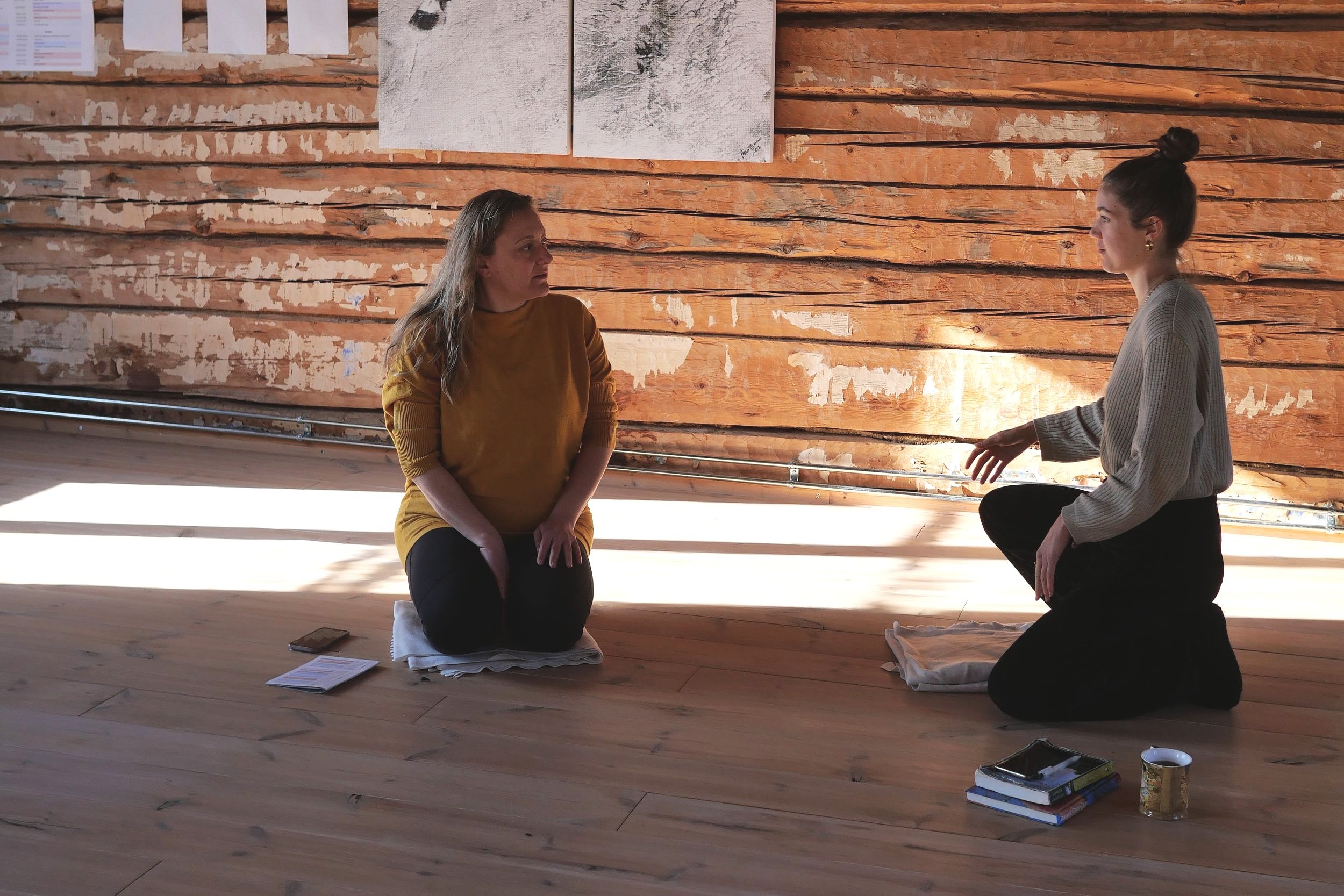Retreat as intervention
When was the last time you took time for yourself to pause, recenter, feel the collective events of the world, and integrate the learnings you have gained? In the fast-paced world we are living in, we don't often create enough space to integrate the collective and personal events that occur, the emotions they create, or the learnings we receive. In turn, we miss out on embodying the wisdom of those experiences and bringing them to life through clear actions.
As Einstein famously noted, problems cannot be solved by the same level of consciousness that created them in the first place. For too long we have been repeating the same mistakes of the past. To address the complex systemic challenges we currently face, we need leaders and changemakers who act from a space of presence and awareness, so that solutions might emerge from the interconnected wisdom of our minds, hearts and bodies.
To reach sustainability goals, we need to see a significant advancement in business models that radically shift towards just and regenerative futures. By regenerative, we mean that we not only do less harm to our environment, but also repair and heal past damage, and seek to continuously restore the health and vitality of our ecosystems. In other words, we create conditions for life to continue flourishing on Earth. This requires a major mindset shift and the ability to reimagine and reinvent new models of coexistence with nature. Imagination and creativity are extremely powerful forces for change, but they are underutilised for transitions. Imagining allows us not just to see radically better futures but also to more viscerally explore and feel their possible impacts. Based on a global study by Adobe, 80% of people feel that unlocking creativity is critical for delivering successful results in these complex times; yet 75% feel under pressure to prioritise productivity over creativity. To focus on efficiency, productivity and short-term problems is to disengage our creative, more intuitive and emotional selves - though it is these selves that can imagine and build alternative futures beyond our current pathway.
In times of multiple, parallel crises, it may feel contradictory to pause all the important things we are doing, in order to ‘just be’ or ‘just witness’ - but we must. We humans are cyclical beings, in that we are not meant to run around ceaselessly without pause. We cannot build a more just and regenerative world from a fight-or-flight state or solely from our analytical minds. We cannot afford not to slow down. But, for us to act from a deeper state of presence, we need spaces where we can step out of the noise, pause, and connect within. We need spaces where we can learn to respond from our parasympathetic nervous system instead of fight-or-flight. We need moments where we allow ourselves to process all that has taken place in our personal lives, our communities and society. Moments where we can slowly integrate all the learnings we have gained from all our experiences, conversations, thoughts and experiments.
The parasympathetic nervous system (PNS) is one of the two functionally distinct and continuously active divisions of the autonomic nervous system (ANS). It is in opposition to the other, the sympathetic nervous system (SNS). The parasympathetic nervous system predominates in quiet “rest and digest” conditions while the sympathetic nervous system drives the “fight or flight” response in stressful situations. (Tindle and Tadi, 2022).
In our Embodied Transition Design Retreats, we are exploring how to create a space that caters for this needed stillness. Through a programme that combines somatic movement, regenerative practices and transition design approaches, we aim to cultivate inner space and reflectivity, before mapping and co-creating solutions that explore the wicked challenges of our times. Moving through these processes in a cyclical way, using our bodies, minds and hearts, we embrace the holistic and interconnected wisdom of our rational, emotional and intuitive selves. Our hope is that after the retreat, you can step into a deeper agency in your field of work and will have greater resilience to maintain the important work that you want to do in this world. Our retreats are aligned with Inner Development Goals (IDGs). The IDGs provide an essential framework of transformative skills for sustainable development, representing 5 dimensions (being, thinking, relating, collaborating and acting) and 23 skills and qualities which are especially crucial for leaders who address SDGs.
Maybe you’re unsure what the value in these other forms of knowledge is, especially in a world dominated by efficient, productive and fast paced modes of working. But creative, embodied and intuitive approaches have served us for millenia, in harmony with these more rational modes. So we invite you to try this with us in your everyday life. Maybe you go for a silent walk in nature, have a moment for play or for making art, or maybe you book a short moment of stillness in your calendar after your lunch break. We all have different life situations, choose whatever works for you at this moment. Reflect on the value it brings to your day, your state of mind, and your motivations.
As the saying goes “small streams make big rivers” (“pienistä puroista syntyy suuri joki” in Finnish). Carving out time for those small moments of stillness is not just a small fragmented action, it is a crucial part of a larger shift that is so needed in this world - and yet we so often forget to do it.
References
Adobe - Study Reveals Global Creativity Gap https://news.adobe.com/news/news-details/2012/Study-Reveals-Global-Creativity-Gap/default.aspx
Tindle & Tadi, 2022. Neuroanatomy, Parasympathetic Nervous System. Parasympathetic. National Library of Medicine. https://www.ncbi.nlm.nih.gov/books/NBK553141/
Inner Development Goals https://www.innerdevelopmentgoals.org/
Hutchins & Storm. 2019. Regenerative Leadership: The DNA of life-affirming 21st century organizations https://www.regenerativeleadership.co/





